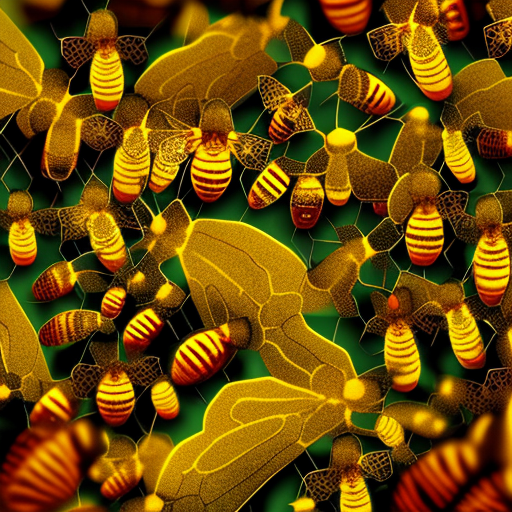One-line Summary:
The Bees is a thrilling and thought-provoking novel that takes readers into the intricate world of bees, exploring themes of hierarchy, sacrifice, and the power of individuality.
The Hive: A Complex Society
In The Bees, author Laline Paull invites readers into the fascinating world of bees, where Flora 717, a lowly sanitation worker, defies the strict hierarchy of the hive and embarks on a journey of self-discovery. The novel presents a meticulously crafted society, mirroring human civilization, with a queen at the top, followed by a caste system of workers, drones, and the feared priestesses. The hive is ruled by strict laws and rituals, and Flora’s journey challenges these established norms.
Flora, unlike her fellow sanitation workers, possesses a unique ability to speak and understand the language of other bees, which sets her apart from the rest. As she navigates the complexities of the hive, Flora encounters various challenges and dangers, including the threat of pesticides, rival colonies, and internal power struggles. Through her experiences, readers gain insight into the intricate social structure and survival instincts of bees.
The Power of Individuality
One of the central themes in The Bees is the power of individuality and the importance of questioning societal norms. Flora’s ability to communicate and think independently allows her to challenge the hive’s rigid hierarchy and ultimately influence its destiny. She questions the unquestioned authority of the queen and challenges the oppressive priestesses, who enforce strict rules and suppress individuality.
Flora’s journey also highlights the significance of unity and cooperation within a society. Despite her rebellious nature, she recognizes the importance of working together for the greater good of the hive. Through her interactions with other bees, Flora learns the value of loyalty, friendship, and sacrifice.
A Metaphor for Human Society
The Bees serves as a powerful metaphor for human society, shedding light on issues such as social inequality, environmental destruction, and the consequences of blind obedience. The novel prompts readers to reflect on their own societal structures and the impact of individual actions on the collective.
Paull’s vivid descriptions of the natural world and the intricate workings of the hive immerse readers in a sensory experience, allowing them to appreciate the beauty and complexity of bees’ lives. The author’s meticulous research and attention to detail create a believable and captivating world that both educates and entertains.
Key Takeaways:
- The Bees explores the complexities of a bee society, mirroring human civilization and highlighting themes of hierarchy, sacrifice, and the power of individuality.
- Flora 717, a sanitation worker, challenges the strict hierarchy of the hive and embarks on a journey of self-discovery.
- The novel serves as a metaphor for human society, prompting readers to reflect on social inequality, environmental destruction, and the consequences of blind obedience.
“She was a bee, and bees did not have thoughts.”
– This quote from the book encapsulates the central theme of individuality and the power of questioning the status quo. It challenges the notion that individuals within a society should simply accept their predetermined roles without questioning or thinking for themselves.
In conclusion, The Bees is a captivating and thought-provoking novel that takes readers on a thrilling journey into the intricate world of bees. Through the eyes of Flora 717, readers gain a deeper understanding of the complexities of bee society and are prompted to reflect on their own societal structures. The novel serves as a reminder of the power of individuality, the importance of unity, and the consequences of blind obedience.












